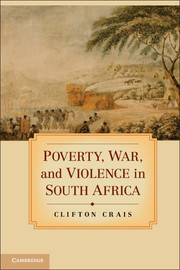3 - Poverty and Plenty
Published online by Cambridge University Press: 05 June 2012
Summary
There are people of “little or no property.” Some are “entirely destitute,” owning nothing. Everyone seems hungry, living day to day. There is scarcity, malnutrition, and the anxieties of not knowing if, and how, one might makes ends meet. Farmers, nonetheless, “have had to buy the greater part of their food.” What money they have goes to pay off their debts to traders. So many children die unexpectedly. People suspect witchcraft. What else could explain such premature death but the malevolent forces of evil? Women prostitute themselves in exchange for food. People live in “wretched huts patched up with pieces of tin and old sacks…many of them suffering from terrible and loathsome diseases.” Locations are populated largely by children, women, and old men; able-bodied men are off working on farms or in towns and cities. Taxes must be paid, money must be earned, and food somehow obtained. Officials arrive, demand payment of arrears, and set fire to people's homes.
These images of poverty and suffering, of premature death and of the tragedies that befall precarious lives, are common among scholars of twentieth-century South Africa. They could also be used to describe many rural areas in the country today and, indeed, across much of the global south. They spring not from newspaper reports or the work of social scientists but from records from more than a century ago. They come from a period– the 1850s through the beginning of the 1890s– scholars are accustomed to seeing as a period of economic prosperity, social health– even progress– before the Glen Grey Act, before a colonial state dictated by large capital and racist sensibilities, and before even the complicated alliances of industry and white farming.
- Type
- Chapter
- Information
- Poverty, War, and Violence in South Africa , pp. 96 - 121Publisher: Cambridge University PressPrint publication year: 2011



